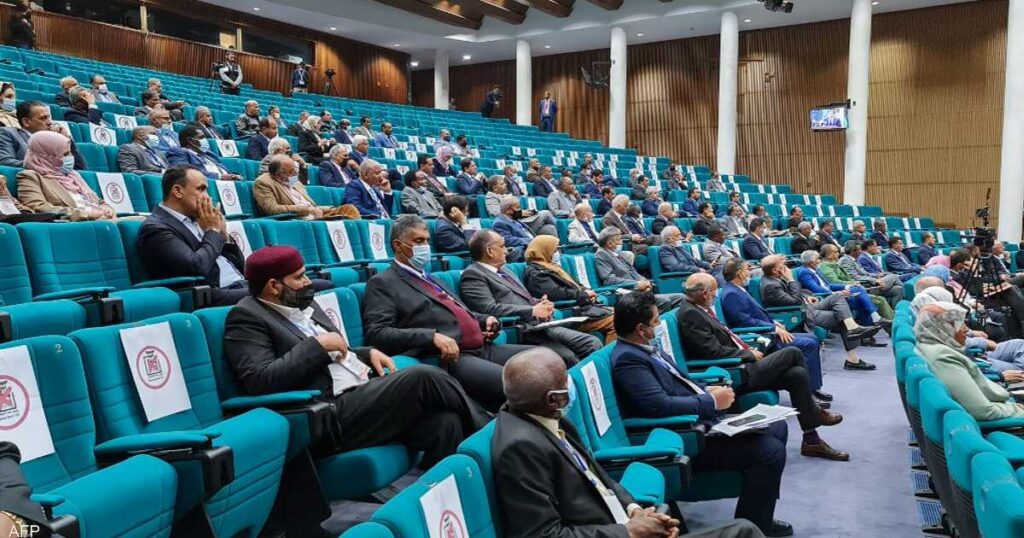Libyan analysts are hopeful about this move, but they emphasise that it is insufficient to ensure the independence of the judiciary in its judgements without dissolving the militias that perpetrate terrorism against the judges.
This happened a week after Parliament enacted a statute reforming the Supreme Court, which required the oath to be taken before the House of Representatives or the Council Presidency.
The swearing-in also came after the Supreme Court’s General Assembly announced the reactivation of its constitutional department to adjudicate appeals, which had been suspended from performing its duties since 2016 due to political conflicts and is regarded as a cornerstone in assessing the integrity of the upcoming elections.
In light of Libya’s current schism between institutions and politics, the president of the Supreme Court in Tripoli, which is controlled by militias, rejected the parliament’s decision to restructure the court, calling it a legal infringement.
justice’s sword
Aqila Saleh spoke on the significance of the judiciary and obtaining justice during the event, emphasising that judges have a prominent position.
He went on to remark, “In Libya, we want judges who are not frightened of the truth and who criticise the blamers.”
The Supreme Court’s Jurisdiction
According to the courts official website in its explanation of itself, the Supreme Court in Libya is the highest degree in the judicial ladder, following the degrees of partial, first instance, and appeal.
The court was established in 1953, and its competencies were entrusted as a constitutional court, a court of cassation in civil, commercial, and legal matters, an administrative court, a special court for electoral appeals, and the role of fatwa and legislation, which are distributed across 12 departments.
The significance of time
In terms of the timing of the Supreme Court’s reformation, Libyan writer Al-Hussein bin Karim claims that the Supreme Court is on the edge of many key events, the most notable of which is the election of a new president.
In addition, a number of advisors who took the oath will be among the members of the constitutional department, and Al-Hussein spoke about how the department will deal with very important and sensitive issues, particularly when it comes to holding presidential and legislative elections and deciding on appeals against laws and legislation governing them.
Terror from the Brotherhood
The House of Representatives tried to organise the judicial house from inside in order to defend it from the terrorist Brotherhood, which had previously employed threatening and coercive tactics to influence judicial rulings.
According to Dr. Muhammad Al-Zubaidi, a professor of international law and Libyan political analyst, it also forced the court’s constitutional chamber to close years ago.
However, Libyans emphasise the importance of disbanding militias and restricting weapons to the state as a foundation for ensuring the independence of the institutions’ work, pointing out that judges in existing courts in western Libya will continue to be influenced by threats and pressures from militias stationed there.
Following challenges brought by extreme religious organisations, the Supreme Court voted in November 2014 to dissolve the elected House of Representatives, which is still in force, a decision that Parliament rejected.
Supreme Court advisors sworn in for Libya

